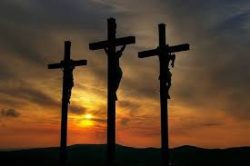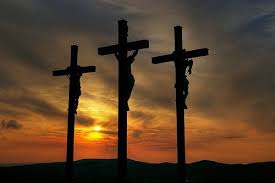 There seems to be a widespread belief that the reason why one comes to Mass is to receive Holy Communion. This belief originated in the mistaken notion that the Mass is somehow a re-enactment of the Last Supper and that therefore the Mass is a meal. And so it would be rude not to eat what is offered at this meal and that one should receive Holy Communion at every Mass unless impeded by serious sin. But as St. Paul told the unruly Corinthians: if you come to Mass to eat, then stay home.
There seems to be a widespread belief that the reason why one comes to Mass is to receive Holy Communion. This belief originated in the mistaken notion that the Mass is somehow a re-enactment of the Last Supper and that therefore the Mass is a meal. And so it would be rude not to eat what is offered at this meal and that one should receive Holy Communion at every Mass unless impeded by serious sin. But as St. Paul told the unruly Corinthians: if you come to Mass to eat, then stay home.
What is the essence of the Mass? The Mass is the re-presentation of the Sacrifice of Calvary in an un-bloody manner on the altar of the church. That is why the altar is called the altar and why the priest is called a priest. A priest is one who offers sacrifice, who makes holy by offering sacrifice, and an altar is where a sacrifice takes place. This understanding of the Mass is already explicit by the time of the early Church Fathers and has been the understanding of the Mass both in the West and the East with a marked consistency through the centuries. One of the theological issues surrounding the Protestant reformation was the understanding of the Mass. Against the Protestant reformers, the Council of Trent reaffirmed in clear terms that the Mass is a Sacrifice in and of itself. The Mass is not a remembrance of the Last Supper, nor is it a merely symbolic act. In the Mass, Christ is offered to the Father for the sins of the world, for the living and the dead, just as Christ offered himself on the Cross two thousand years ago. And so the offering of the Mass imparts grace to those who assist in its celebration, who join themselves with the priest in offering the only Perfect Sacrifice, which is the only true worship of God, in Spirit and in Truth. The worship of God in the Mass is why we come to Mass and is the basis for the obligation to assist at Mass every Sunday and Holy Day.
Now, Holy Communion is the wonderful fruit of the Sacrifice. And it is indeed a wondrous, wonderful and grace filled act in which one receives Holy Communion. But we receive Holy Communion only after the Sacrifice has been completed. The reason for the Consecration of the bread and wine to become the true Body and Blood of Christ is so that the living Lord Himself can be offered to the Father. To be offered in Sacrifice in the Mass, the true Body of Christ must be present on the altar, the true Blood of Christ must be on the altar. The Sacrifice is consummated when the priest consumes the Body and Blood of Christ.
People wrongly think that when the priest consumes the Body and Blood of Christ, he is merely receiving Holy Communion a few minutes before the people do. No. What the priest does in consuming the Sacred Species is to complete the Sacrifice. It is only then that the people are invited to receive the fruit of that Sacrifice in Holy Communion. This is another gift of grace that is the fruit of the gift of grace that participation in the Sacrifice bestows. We all know that many of the great saints received Holy Communion quite infrequently. This does not mean that they did not know what Holy Communion means and the wonderful Gift that it is. It means that they did not equate receiving Holy Communion with the obligation to assist at Mass. In fact, there was no rite for the reception of Holy Communion in the Missals before the Mass of Paul VI was introduced. The rite we use at the Extraordinary Form comes from the rite for the reception of Holy Communion outside the Mass.
To receive Holy Communion at Mass is a wonderful and good thing. We are blessed in our parishes to have so many of our people who receive Holy Communion at Mass. But reception of Holy Communion should never be taken as “part of the scene” at Mass, nor should it be seen as the most important thing we do at Mass. The most important thing is to worship God in joining ourselves with the priest in offering the holy sacrifice. And from that – all other grace flows.

